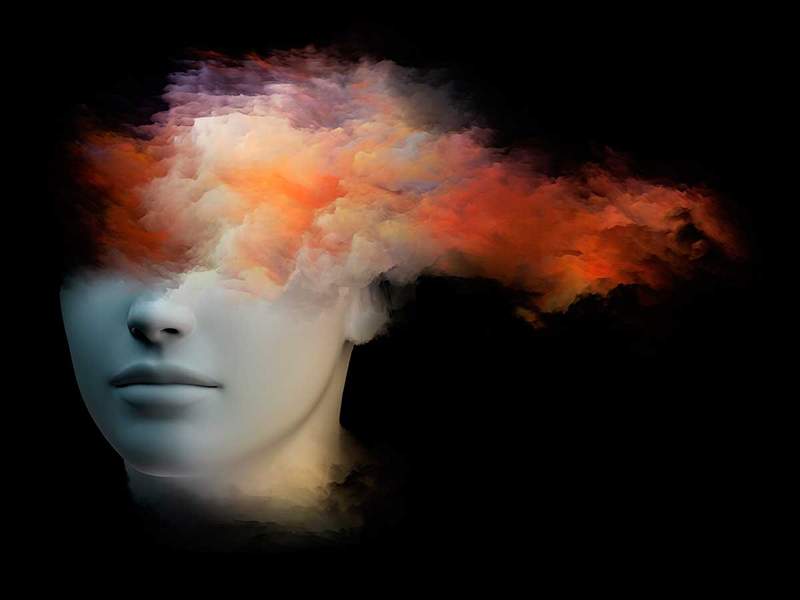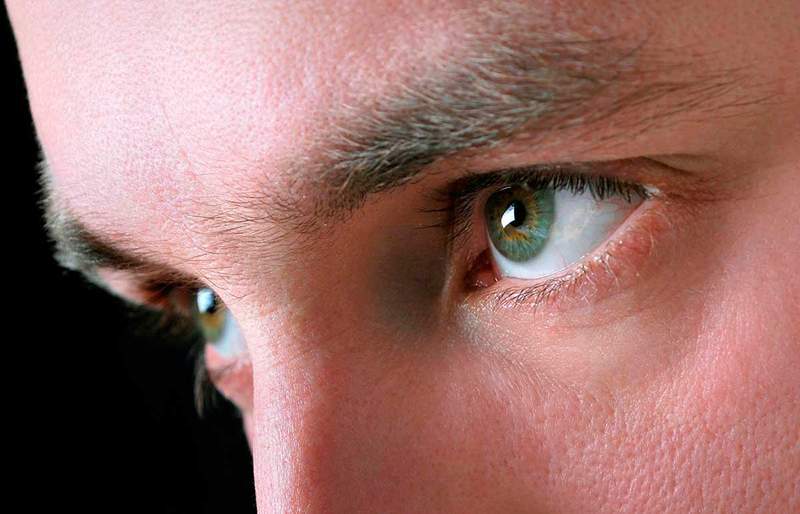What is psychosis?

- 1756
- 271
- Lorenzo West I
The psychosis It is an abnormal condition of thought that is characterized by an altered vision of reality and a loss of contact with the same. People who experience psychosis may present changes in personality and thought disorders. Depending on its severity, this can be accompanied by unusual or strange behavior, as well as difficulty with social interaction and deterioration in the performance of daily life activities. It is a symptom of serious mental disorders. People Psychotics can have all kinds of hallucinations or delusions.
Content
Toggle- What are hallucinations or delusions?
- What are the symptoms of psychosis?
- The causes of psychosis
- Diseases that can cause psychosis include
- Psychosis risk factors
- Types of psychosis
- Brief psychotic disorder
- Drug or alcohol psychosis
- Organic psychosis
- Mental disorders
- Treatment of psychosis
- Psychopharmaceuticals
- Cognitive behavioral therapy
What are hallucinations or delusions?
The hallucinations They are sensory experiences that appear in the absence of a real stimulus. For example, a person who has an auditory hallucination can hear his mother scream when she is not close. Or someone who has a visual hallucination can see something, like a person in front, but who is not really there.
Psychosis can also present thoughts that are contrary to reality. These thoughts are known as delusions. Some people with psychosis may also experience loss of motivation and social isolation.
These experiences can be truly scary. Sometimes, they can make people who are going through a psychotic outbreak hurt themselves or others.
What are the symptoms of psychosis?
- Difficult to focus
- Depressed mood
- Sleep too much or not enough
- Anxiety
- Suspicion
- Isolation of friends and family
- Delusions
- Hallucinations
- Disorganized language, such as changing themes erratically
- Depression
- Suicidal thoughts or actions
 Symptoms, causes and treatment of trichotylomania
Symptoms, causes and treatment of trichotylomania The causes of psychosis
Each psychosis case is different, and the exact cause is not always clear. There are, however, certain diseases that cause psychosis. There are also triggers such as drug use, lack of sleep, and other environmental factors. In addition, certain situations can lead to certain people to develop psychosis.
Diseases that can cause psychosis include
- Brain diseases such as Parkinson's disease, Huntington's disease and some chromosomal disorders.
- Brain tumors or cysts.
In addition, some types of dementia can cause psychosis, such as:
- Alzheimer's disease
- HIV, Syphilis and other infections that attack the brain
- Some types of epilepsy
Psychosis risk factors
It is currently not possible to identify precisely who is prone to develop psychosis. However, research has shown that genetics can play an important role.
People are more likely to develop a psychotic disorder if they have a close relative, such as a father or brother suffering from a psychotic disorder.
Children born with the genetic mutation known as 22q11 deletion syndrome.2 have a greater risk of developing a psychotic disorder, especially with schizophrenia.
Types of psychosis
Some types of psychosis are caused by specific conditions or circumstances that include the following:
Brief psychotic disorder
A brief psychotic disorder, sometimes called brief reactive psychosis, can occur during periods of extreme personal stress such as the death of a family member. A person who experiences brief reactive psychosis will generally recover in a few days or weeks, depending on the stress source.
Drug or alcohol psychosis
Psychosis can be caused by the use of illegal alcohol and drugs, including stimulants such as methamphetamine and cocaine. Hallucinogenic drugs such as LSD often cause consumers to see things that are not real, but this effect is temporary. Some prescription medications such as steroids and stimulating can also cause symptoms of psychosis.
People who are addicted to alcohol or certain drugs may experience psychotic symptoms if they suddenly stop drinking or taking the drug to which they are addicted.
Organic psychosis
They are psychosis due to organic brain causes. A head injury, a disease such as a tumor or an infection that affects the brain, can cause psychotic symptoms.
Mental disorders
Psychotic disorders can also appear due to certain mental illnesses. The following types of disorders can lead to psychotic symptoms:
- Bipolar disorder: When someone suffers from this disorder, their mood ranges from very high to very low. When your mood is high and positive, you can have psychotic symptoms. You can feel very good and believe that you have special powers. When their mood is depressed, the individual can have psychotic symptoms that make them feel sad and frightened. These symptoms include thinking that someone is trying to harm them.
- Deluste disorder: A person who experiences delusional disorder firmly believes in things that are not real, such as someone pursues it, for example.
- Psychotic depression: It is a greater depression with psychotic symptoms.
- Schizophrenia: Schizophrenia is a disease that is generally accompanied by psychotic symptoms.
 Ocular test that identifies people with schizophrenia
Ocular test that identifies people with schizophrenia Treatment of psychosis
The treatment of psychosis may imply a combination of medicines and psychotherapy. Most people will experience great improvement in their symptoms with treatment.
Psychopharmaceuticals
Psychosis symptoms can be controlled with medications called antipsychotics. These medications reduce hallucinations and delusions and help think more clearly. The type of medication prescribed will depend on the symptoms.
In many cases, people only need to take antipsychotics for a short period of time to have their symptoms under control. People with schizophrenia can have to remain under pharmacological treatment all their lives.
Cognitive behavioral therapy
This approach has proven to be effective in helping people to make permanent changes and more effectively manage their disease. It is often more useful for psychotic symptoms that are not completely resolved with medications.
Psychosis does not present too many medical or organic complications. However, if left without treatment, it can be a challenge for people who experience psychosis to achieve proper care of themselves. That could cause other diseases that also require treatment.
Most people who experience psychosis recover with proper treatment. Even in severe cases, medication and therapy can be of great help.

